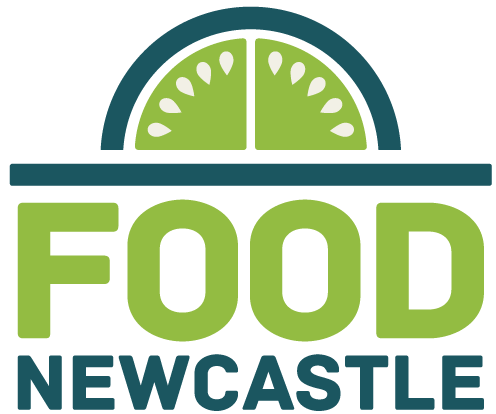Select a theme to see examples of actions you can take
 Support Your Community
Support Your Community Eat Well
Eat Well Shop Local
Shop Local Waste Less
Waste LessSelect an action from the list below to let us know how you're taking action
- Join in with a community activity in your local area, such as a community allotment, or offer to volunteer to the organisation
- Shout about a local food project near you, talking about them or sharing their posts on social media can help make sure people can access the right support
- Help out a neighbour, by offering to do their food shopping, or sharing a meal
- Donate food to a local food bank or other food charity, find out what they're in need of on their website or social media
- Organise a fundraising event for a local voluntary organisation, by hosting a bake sale or doing a running challenge
- Contact your MP asking for change related to a food issue, such as reducing food poverty, supporting sustainable food, or reducing food waste https://members.parliament.uk/constituencies/
- If someone you know is at risk of food poverty, signpost them to Newcastle's Active Inclusion team who can provide financial advice https://www.newcastle.gov.uk/services/welfare-benefits/welfare-rights-and-money-advice/debt-and-money-advice
Find out more about community organisations near you using our Partners Page
Tell us your suggestions to Support Your Community on our Let's Talk Page
Select an action from the list below to let us know how you're taking action
- Make a donation to a local voluntary food organisation, donate a percentage of your profits, or items of stock to support a good cause
- Organise a fundraising event in your workplace for staff and clients
- Encourage staff to volunteer to support local voluntary food organisations, if you can provide paid time-off for staff to volunteer
- Become an advocate of a local community organisation, and promote their work to staff and customers
- Commit to paying the real living wage, to help households become more financially stable, and at a lower risk of food poverty livingwage.org.uk
- Share your expertise, offer your time to support a voluntary organisation such as offering cooking skills to their staff or volunteers, helping update their website or social media page, or offering to take photographs for their organisation, the possibilities are endless
Find out more about community organisations near you using our Partners Page
Tell us your suggestions to Support Your Community on our Let's Talk Page
Select an action from the list below to let us know how you're taking action
- Cook more meals from scratch so you know exactly what has gone into your food, and you can control the amount of salt, sugar and fat added to your food
- Have a go at growing your own food at home like herbs or strawberries - growing your own food is a fun family activity and very rewarding
- Introduce meat-free meals to your week, plant-based meals are good for your health and the environment too
- Choose your snacks and drinks carefully and take a look at the packaging to check how much sugar your food contains
- Aim for your 5-a-day of fruit and veg, and remember fresh, tinned, frozen, dried and fruit juices all count
- Have a go at a cooking new recipe that you haven't made before, or try to use a new ingredient you haven't used before
Find out more about organisations near you who can offer more support using our Partners Page
Tell us your suggestions to Eat Well on our Let's Talk Page
Select an action from the list below to let us know how you're taking action
- Promote meat-free meals to staff and/or customers to help reduce their carbon footprint, and to help increase the variety of fruits & vegetables they consume
- Provide free drinking water to ensure staff & customers are hydrated, and to help reduce sugary drink consumption
- Reduce the amount of sugar in the food and drink you produce or provide
- Promote healthy options including 5-a-day messages in your workplaces or organisations
- Use seasonal ingredients where possible to help support the local economy whilst eating well
- Encourage staff to eat their lunch away from their desk, to give their brain a break from work, or suggest a lunchtime walk to get some fresh air
Find out more about organisations near you who can offer more support using our Partners Page
Tell us your suggestions to Eat Well on our Let's Talk Page
Select an action from the list below to let us know how you're taking action
- Visit a local food market and buy from local producers and retailers to help support the local economy
- Sign up to a weekly veg box scheme and have locally grown seasonal vegetables or other produce delivered to your door each week
- Buy ethically sourced foods including high animal welfare food such as free-range chicken or eggs, or sustainably sourced fish https://www.mcsuk.org/goodfishguide/search
- Choose to eat at restaurants or cafes that source their food locally and ethically
- Like, comment and share on social media or talk about your favourite small businesses to encourage new customers to buy from them
- Write a review on google reviews or trip advisor for your favourite local producers, retailers, restaurants and cafes
Find out more ways to shop local using our Partners Page
Tell us your suggestions to Shop Local on our Real People Real Actions Page
Select an action from the list below to let us know how you're taking action
- Promote using local food producers and retailers to your staff and/or customers
- Promote buying higher welfare foods to your staff and customers, such as free-range chicken or eggs, or sustainably sourced fish
- Promote seasonal foods to your staff and/or customers as these have a lower carbon footprint and tend to be tastier and more nutritious
- Caterers, Use more locally produced foods on your menu to support local producers, and talk about them on your menu so your customer knows where their food comes from (Schools, universities, hospitals and other care settings can all commit to using local producers)
- Retailers, Stock local food and drink producers in your store and encourage customers to buy these products
- Producers, Consider selling your food and drink products at a local food market, or through a local retailer to reach more customers
Find out more ways to shop local using our Partners Page
Tell us your suggestions to Shop Local on our Let's Talk Page
Select an action from the list below to let us know how you're taking action
- Set aside at least one day per week to cook using leftover ingredients, you can take inspiration from online recipe makers https://www.escoffieronline.com/top-apps-for-finding-recipes-for-ingredients-you-already-have/
- Make sure your fridge is set to 3 degrees, as this makes food last 2 days longer on average, you can buy a digital thermometer online for less than £5 and research shows the cost of the thermometer and the increased energy usage are far outweighed by making your food last longer!
- Keep a record of the most wasted foods in your house, and try and identify the causes - perhaps the portion sizes are too big, or could you be storing your food better, such as freezing half the loaf of bread when you get home from the shops
- Best before dates are only advice, and refer to the quality of the food, most foods will still be good to eat after this date. Use-by dates are the important ones that refer to the safety of the food
- Look for yellow label reduced stickers on foods at the supermarket, rescue food that may end up being wasted by buying it at a reduced price
- Try composting your food waste at home and use the compost to grow new foods
- Save food that would have otherwise gone to waste by buying food through a redistribution company such as 'Too Good To Go' or 'OLIO' or 'Magic Hat Cafe'
Find out more about organisations helping to reduce food waste using our Partners Page
Tell us your suggestions to Waste Less on our Let's Talk Page
Select an action from the list below to let us know how you're taking action
- Carry out a simple food waste audit to identify what foods are most commonly wasted - this could include technology systems such as Lean Path and Winnow, simply weighing bins at the end of each day, or keeping a diary next to the bin to record when food is wasted
- Ask staff for ideas on how to reduce food waste, and offer an incentive for the best idea - this will help reduce your food waste levels and make your staff feel valued at the same time
- Encourage staff to take surplus food home, and consider portioning cooked food to make this easier
- Reduce or recycle food related packaging, aim to buy products without single use plastic where possible
- Redistribute surplus food to help reduce waste, by using a food re-distribution company such as 'Too Good To Go' or 'OLIO'
- If you regularly have surplus that you're struggling to redistribute, contact The Magic Hat Cafe who can link you up with a nearby community group and/or collect the food directly from you.
Find out more about organisations helping to reduce food waste using our Partners Page
Tell us your suggestions to Waste Less on our Let's Talk Page
Enter your name/company and commit to taking action

